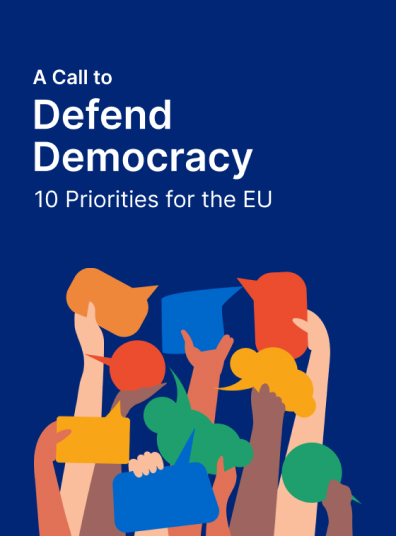A Call to Defend Democracy
On 6-9 June 2024, the European Parliament elections will reaffirm the European Union’s foundational commitment to democratic values. We, leaders from different countries and walks of life, call upon the next EU leadership to consider ten priorities to place democracy, at home and abroad, at the top of the policy agenda.
Organisations
signed
Individual
signatories
The Statement
On 6-9 June 2024, European voters representing nearly 450 million European citizens will participate in the European Parliament elections. These elections will reaffirm the European Union’s foundational commitment to democratic values and its vital role as a pole of democratic development in an increasingly authoritarian world.
Today, democracy faces an array of grave challenges, globally as well as within the EU’s own borders. EU institutions, custodians of the most successful multi-national project ever attempted to uphold the values of democracy, peace, sustainable development, and multilateralism, bear a historic responsibility at this critical juncture.
We, leaders from different countries and walks of life, thus call upon the next EU leadership to consider these ten priorities to place democracy, at home and abroad, at the top of the policy agenda in the Union for the duration of their mandates and beyond.
There is abundant evidence that democracy is, by far, the preferred form of government by most people in the world, as the best guarantor for human development and a vibrant and pluralist civic space. Yet, growing socio-economic inequalities, corruption, polarization, disinformation, and the acute uncertainties created by the climate crisis and disruptive digital technologies have eroded satisfaction with democratic institutions in many countries. This process has coincided with large geopolitical shifts in which the influence and boldness of some authoritarian regimes, as well as the coordination among them, have visibly grown.
The global weakening of democracy has gone hand-in-hand with a rise in global conflict, which has intensified migration flows, energy shortages, and trade disruptions, while imposing large defence investments for many years to come. For most countries in the world –certainly for the EU—the global erosion of democracy has become a pressing threat to their security.
These converging challenges have created a real risk that in this global election year, EU member states as well as some of its key partners may see the ascent of anti-democratic political actors. This has already happened in some EU countries, where basic tenets of democratic governance, fundamental rights, and the rule of law have been steadily declining for several years. These pressures undermine not only the EU’s founding democratic values, but also the credibility of its efforts to strengthen democracy around the world.
The EU has emerged as a global leader on democratic support. For decades, the EU’s external policies have advanced democracy, human rights, and the rule of law in all continents. Today, the EU and its member states are the biggest provider of democracy support globally. Despite the Union’s internal challenges to the rule of law, citizens around the world still consider the EU an indispensable actor to defend universal democratic values, such as human rights and accountable governance. Moreover, the EU’s role as a global norm-setter on new democracy areas such as data protection, digitalization, and the governance of digital platforms and technologies (e.g. Artificial Intelligence) has further strengthened its ability to support citizens fighting autocratic control. The EU has demonstrated a laudable appetite for trialing democratic innovations to better connect its institutions with European citizens, as well as encouraging the involvement of citizens in policymaking among its member states.
Ensuring strong democracies in European Member States is the basis for combating challenges such as the rise of extremism, election interference, the spread of manipulative information and threats to journalists. Safeguarding democracy at home, moreover, also maintains the EU’s legitimacy abroad. We suggest the following priorities to better uphold democracy and the rule of law within the EU:
- Integrating democracy as an ambitious work programme in the EU’s regional funds, agricultural policy, and recovery funds, all of which are served by a more democratic union.
- Expanding the EU’s toolbox to uphold the rule of law within its borders, using it consistently, transparently and in full protection of the EU’s financial interests, while continuing efforts to reconnect citizens with democracy.
- Preserving and enhancing the European Commission’s efforts to combat disinformation, to promote media freedom and pluralism by supporting journalists and human rights defenders, and to regulate the role of money in politics.
- Putting democracy and human rights considerations at the heart of the regulation and enforcement of new and emerging digital technologies, and providing better data access for monitoring by experts.
- Increasing support to representative democratic institutions, political parties, civil society organizations, independent media, and citizen participation both inside and outside the EU, including through mechanisms to report unlawful restrictions on them, and discouraging its member states from legislation and activities that undermine civic space and fundamental rights.
- Vesting the responsibility to support democracy with an EU Commissioner that has the necessary profile and democracy track-record and is endowed with sufficient resources to effectively pursue this crucial mandate.
Externally, we expect to see the EU uphold its founding values in the face of security, migration, energy and trade pressures. We expect it to place democracy at the heart of these agendas and acknowledge that the Union’s interests are better protected in a more democratic world. We thus call for the adoption of the following priorities by the EU:
- Mainstreaming democracy in its trade and investment agendas, such as its flagship Global Gateway infrastructure programme, in ways that are measurable and help showcase that democracy can deliver for the wellbeing aspirations of citizens.
- Prioritizing the protection of electoral integrity worldwide, including by renewing the EU’s guidelines on electoral support and strengthening EU election observation.
- Placing democracy, the rule of law, and fundamental rights at the top of EU concerns in its current drive for enlargement (‘fundamentals first’), this being the single most effective and proven mechanism to accelerate accession talks, and to contribute to a fact-based debate on enlargement.
- Allocating increasing resources to programmes and staff dealing with democracy and civic space, both in the EU’s immediate neighbourhood and globally, for reasons of principle and because a more democratic world serves the EU’s broader security, trade and migration interests.
With these 10 priorities, we call upon the future authorities of the European Parliament, the Council, and the European Commission to seize the opportunity of these European elections to defend and support democracy as the hallmark of the EU’s existence. Only by practicing its foundational values will the EU maintain its credibility as a global champion of democracy.
View a video message from International IDEA's Secretary-General Kevin Casas-Zamora
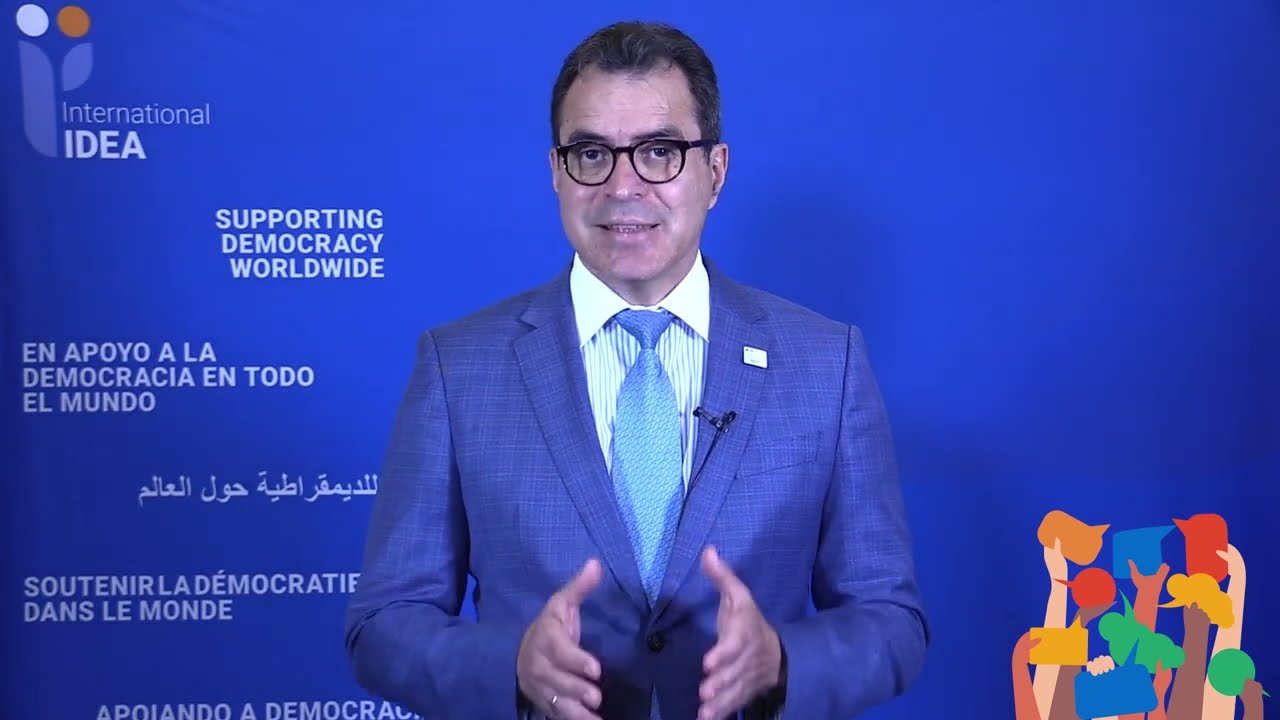
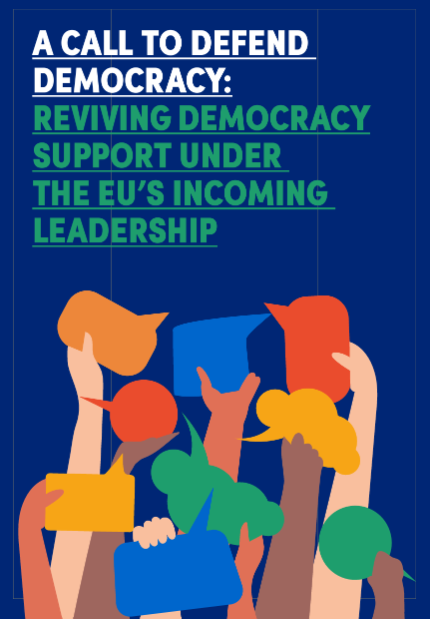
Policy Brief: Reviving democracy support under the EU’s incoming leadership
By Richard Youngs and the European Endowment for Democracy. Building on the Call to Defend Democracy, this policy brief provides further details on policy ideas to operationalize these democracy commitments. The policy brief proposes 10 ideas for improving European external democracy support and 5 ideas for the internal democracy agenda.
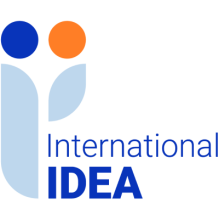

.png)
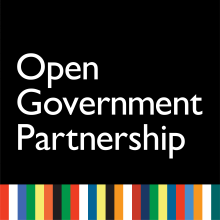
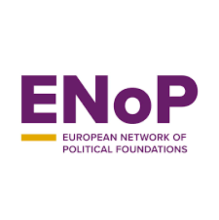
Signatories
Initiating partners


.png)


Organisations
- Accountability Lab
- Afghans Empowered
- African Foundaation for Environment and Development (AFED)
- Albanian National Youth Network (ANYN)
- Alliance des Jeunes pour la sauvegarde des Acquis Démocratiques (AJSAD)
- Alliance for Finance Monitoring (ACFIM)
- Alma Civica
- Amazon Theatrix Ensemble
- Asia Democracy Network (ADN)
- Asia Development Alliance
Individual signatories
|
Aboelazm, Mohamed Convening Council Member of the Congress of Nations and States Egypt |
|
Ade, Mabel A. Executive Director, Adinya Arise Foundation (AAF) Nigeria |
|
Aiossa, Nicholas Director of Transparency International EU USA |
|
Akwetey, Emmanuel Executive Director of the Institute for Democratic Governance (IDEG Ghana) Ghana |
|
Al-Sahlani, Abir Member of the European Parliament Sweden |
|
Alemanno, Prof. Alberto Jean Monnet professor and Founder of The Good Lobby Italy |
|
Alexander, Jon Author of CITIZENS United Kingdom |
|
Alexander, Likhotal Professor at the Geneva School of Diplomacy and International Relations Switzerland |
|
Anand, Panyarachun Former Prime Minister of Thailand Thailand |
|
Anin-Yeboah, Kwasi Former Chief Justice of Ghana and Member of International IDEA's Board of Advisers Ghana |
| Surname | Name | Affilation | Country |
|---|---|---|---|
| Aboelazm | Mohamed | Convening Council Member of the Congress of Nations and States | Egypt |
| Ade | Mabel A. | Executive Director, Adinya Arise Foundation (AAF) | Nigeria |
| Aiossa | Nicholas | Director of Transparency International EU | USA |
| Akwetey | Emmanuel | Executive Director of the Institute for Democratic Governance (IDEG Ghana) | Ghana |
| Al-Sahlani | Abir | Member of the European Parliament | Sweden |
| Alemanno | Prof. Alberto | Jean Monnet professor and Founder of The Good Lobby | Italy |
| Alexander | Jon | Author of CITIZENS | United Kingdom |
| Alexander | Likhotal | Professor at the Geneva School of Diplomacy and International Relations | Switzerland |
| Anand | Panyarachun | Former Prime Minister of Thailand | Thailand |
| Anin-Yeboah | Kwasi | Former Chief Justice of Ghana and Member of International IDEA's Board of Advisers | Ghana |
On 6-9 June 2024, the European Parliament elections will reaffirm the European Union's foundational commitment to democratic values. Today, democracy faces an array of grave challenges, globally as well as within the EU's own borders. EU institutions, custodians of the most successful multi-national project ever attempted to uphold the values of democracy, peace, sustainable development, and multilateralism, bear a historic responsibility at this critical juncture. Join me in signing this Statement to call upon the next EU leadership to consider 10 priorities to place democracy, at home and abroad, at the top of the policy agenda.

